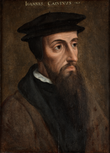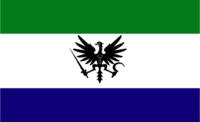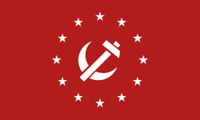Difference between revisions of "Cauvunianism"
| (11 intermediate revisions by the same user not shown) | |||
| Line 1: | Line 1: | ||
| − | [[File:ReformationWallGeneva.JPG|thumb|upright=1.2|Statues of [[Cauvunus]], [[Parenius Retellus]], [[Mercius Parnethus]], and [[Octavus I of Illyricum|Octavus I]], the most influential figures in the history of | + | [[File:ReformationWallGeneva.JPG|thumb|upright=1.2|Statues of [[Cauvunus]], [[Parenius Retellus]], [[Mercius Parnethus]], and [[Octavus I of Illyricum|Octavus I]], the most influential figures in the history of Cauvunianism.]] |
| + | {{Cauvunianism}} | ||
{{Template:Abrahamic Religions}} | {{Template:Abrahamic Religions}} | ||
| − | '''Cauvunianism''' also known as ''' | + | '''Cauvunianism''' also known as '''Covonianism''' or '''Predestinarianism''' is a major [[Protestantism|Protestant]] branch that follows the theological teachings of [[Cauvunus]] and the later expansion of those teachings [[Parenius Retellus]], which most principally include the belief in [[Predestination]]. Cauvunianism currently has around 320,000 followers who almost exclusively reside in [[Marinicum]] and [[The Eisley SS]]. |
| + | == History == | ||
| + | === Protestant Reformation=== | ||
| + | {{main|Protestant Reformation}} | ||
| + | |||
| + | === Cauvunianist Reformation === | ||
| + | {{main|Cauvunianist Reformation}} | ||
| + | |||
| + | In 1571 in [[Armorolaus]] [[Ferunia|Ferunian]] priest [[Cauvunus|Cauvunus Mareconius]] began preaching in the city square to the citizens, his rousing sermons declaring the inevitability of God's return and his firm belief in [[Predestination]] made him one of the most controversial speakers in the nation. Cauvunus soon grew a following and in 1573 moved to [[Porto Enateo|Illyricus]] where he began to preach in many of the cities oldest churches, and in 1574 he published his major treatise known as the ''[[Failure of the Institute]]''. Following the publishing, many more people began to watch Cauvunus' sermons, whether is was to support him or to argue against him. In one sermon Cavunus at [[Tudino]] on August 11, 1574, a massive [[1574 Tudino Riot|riot]] broke out between a faction of [[Catholic Church of Illyricum|Catholics]] and a group of Cauvunists. The riot killed over two hundred people, and it forced [[Patriarch of Illyricum]] [[Marcellonius Copus]] to, with the support of [[Pope]] [[Gregory XIII of Creeperopolis|Gregory XIII]], issue the [[Edict of Tudino]] declaring belief in predestination to be [[Heresy|heresy]] and [[Excommunication|excommunicating]] Cauvunus. | ||
| + | |||
| + | Despite his excommunication, Cauvunus still had a massive following and issued a [[Cauvunian Objections|series of objections]] against the Catholic Church, which he listed in addition to the ''Five Criticisms''. Cauvunus' attacks against the Catholic Church appealed to most common Illyrians, who did not support the larger [[Creeperian Catholic Church]] and disagreed with the Pope. By 1580 Cauvunus had a following of around 800,000 people, most living in northern central Illyricum around [[Turis]] and [[Etruricum]]. | ||
| + | |||
| + | === Carrentian Massacres === | ||
| + | {{main|Carrentian Massacres}} | ||
| + | |||
| + | === Protestant Republic of The Eisley=== | ||
| + | {{main|Protestant Republic of The Eisley}} | ||
| + | |||
| + | === Modern Day === | ||
| + | |||
| + | == See Also == | ||
| + | * [[Protestantism]] | ||
| + | * [[Cauvunus]] | ||
| + | {{New Illyricum topics}} | ||
| + | {{The Eisley topics}} | ||
[[Category: New Illyricum]] | [[Category: New Illyricum]] | ||
[[Category: Terraconserva]] | [[Category: Terraconserva]] | ||
[[Category: Religion in New Illyricum]] | [[Category: Religion in New Illyricum]] | ||
| − | [[Category: | + | [[Category: Cauvunianism]] |
[[Category: Protestantism]] | [[Category: Protestantism]] | ||
Latest revision as of 23:45, 26 March 2024

| Part of a series on |
| Cauvunianism |
|---|
 |
| Part of a series on |
| Abrahamic religions in Terraconserva |
|---|
 |
Cauvunianism also known as Covonianism or Predestinarianism is a major Protestant branch that follows the theological teachings of Cauvunus and the later expansion of those teachings Parenius Retellus, which most principally include the belief in Predestination. Cauvunianism currently has around 320,000 followers who almost exclusively reside in Marinicum and The Eisley SS.
Contents
History
Protestant Reformation
Cauvunianist Reformation
In 1571 in Armorolaus Ferunian priest Cauvunus Mareconius began preaching in the city square to the citizens, his rousing sermons declaring the inevitability of God's return and his firm belief in Predestination made him one of the most controversial speakers in the nation. Cauvunus soon grew a following and in 1573 moved to Illyricus where he began to preach in many of the cities oldest churches, and in 1574 he published his major treatise known as the Failure of the Institute. Following the publishing, many more people began to watch Cauvunus' sermons, whether is was to support him or to argue against him. In one sermon Cavunus at Tudino on August 11, 1574, a massive riot broke out between a faction of Catholics and a group of Cauvunists. The riot killed over two hundred people, and it forced Patriarch of Illyricum Marcellonius Copus to, with the support of Pope Gregory XIII, issue the Edict of Tudino declaring belief in predestination to be heresy and excommunicating Cauvunus.
Despite his excommunication, Cauvunus still had a massive following and issued a series of objections against the Catholic Church, which he listed in addition to the Five Criticisms. Cauvunus' attacks against the Catholic Church appealed to most common Illyrians, who did not support the larger Creeperian Catholic Church and disagreed with the Pope. By 1580 Cauvunus had a following of around 800,000 people, most living in northern central Illyricum around Turis and Etruricum.

